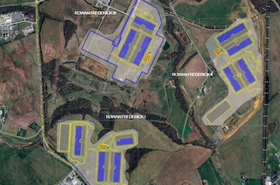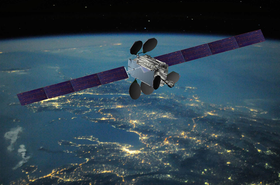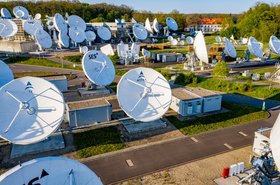SpaceX CEO Elon Musk denied reports that US negotiators threatened to cut of Ukraine's access to Starlink as they seek to gain rights to the country's critical minerals.
Reuters cited three sources familiar with the matter, who said that Ukraine's access to the critical satellite Internet service was brought up after Ukrainian President Volodymyr Zelenskyy turned down an initial proposal from US Treasury Secretary Scott Bessent.
The issue was brought up a second time during meetings between Keith Kellogg, the US special Ukraine envoy, and Zelenskyy, said one of the sources. Starlink is used by Ukrainian troops as part of the effort to repel Russian forces, and has been instrumental in maintaining connectivity on the battlefield.
Ukraine was threatened that it faced imminent shutoff of the service if it did not reach a deal on critical minerals.
US President Donald Trump has pushed for access to Ukraine's rare-earth critical minerals in a deal worth as much as $350 billion. Oil and gas revenues and earnings from ports and other infrastructure were also demanded by the US.
The initial deal was pitched as payback for past military aid, with no guarantee of future aid. Zelenskyy has said that assistance from the US was closer to $100bn, and that it was given by the Biden administration as a grant.
While he rejected the initial deal, negotiations are still ongoing. Zelenskyy has said Ukraine must have Western arms and backing in any peace deal, and offered to step down in return for Ukraine entering NATO.
Trump has called Zelenskyy “a dictator” and falsely accused Ukraine of starting the war. Russia invaded Crimea in 2014 and the rest of Ukraine in 2022.
Following Reuters' report, Musk took to his social media platform X to deny the claims.
"This is false," he said. "Reuters is lying. They are second only to AP (Associated Propaganda) as legacy news liars."
He later tweeted an image of the word Reuters, itself made out of hundreds of the word 'lies.'
Musk in 2024 accused Reuters of "lying" for reporting that Tesla had scrapped its plans for a $25,000 Model 2 affordable electric car. Speaking months later at Tesla's third-quarter financial results, Musk said: "When we talk about a $25,000 electric car, it wouldn't make much sense to think about a model other than the Cybercab."







